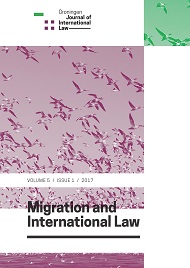The International Convention on Elimination of All Forms of Racial Discrimination – Reviewing Special Measures Under Contemporary International Law
DOI:
https://doi.org/10.21827/59db6930da8d4Abstract
Racial discrimination is a controversial subject in society and in contemporary international law. Nonetheless, the prohibition of racial discrimination has been universally accepted and States should do everything to prevent racial discrimination. Although protection therefrom cannot be explicitly found in fundamental human rights instruments such as the Universal Declaration of Human Rights, the International Social and Cultural Rights, these documents do, however, include the broader concept of equality and non-discrimination. Nevertheless, a more specific binding legal document exists that addresses racial discrimination, namely the International Convention on the Elimination of All Forms of Racial Discrimination. This document sets out the legal framework of racial discrimination and special measures (measures that eliminate racial discrimination). Racial discrimination concerns a certain act under certain conditions that nullifies or impairs the exercise or enjoyment of human rights and fundamental freedoms. Special measures are also known as affirmative action or positive discrimination and include a wide span of instruments, but need to be legitimate, necessary, appropriate, temporary, and respect the principles of fairness and proportionality. Although special measures do not constitute racial discrimination, they are no exception to racial discrimination. Instead, they are an integral part of the concept of eliminating discrimination and achieving equality. Thus, before one can consider a measure as a special measure, there needs to be racial discrimination. If that is the case, then the State is obliged to take special measures to protect those who need protection from racial discrimination. The Convention is very clear about the legal framework of racial discrimination and special measures. This article applies this legal framework to the current situation in Yogyakarta, Indonesia – where non-native Indonesian citizens cannot own land due to local government rules. When doing this, one can conclude that there is racial discrimination towards non-native Indonesian citizens. Therefore, this article recommends to the local government in Yogyakarta and the central government in Indonesia that they revoke this Governor Instruction. Moreover, the international community can take initiative and invoke responsibility from the political organs in Indonesia. A Special Rapporteur may make the difference and determine the presence of racial discrimination in Yogyakarta.Published
Issue
Section
Open Access Creative Commons


